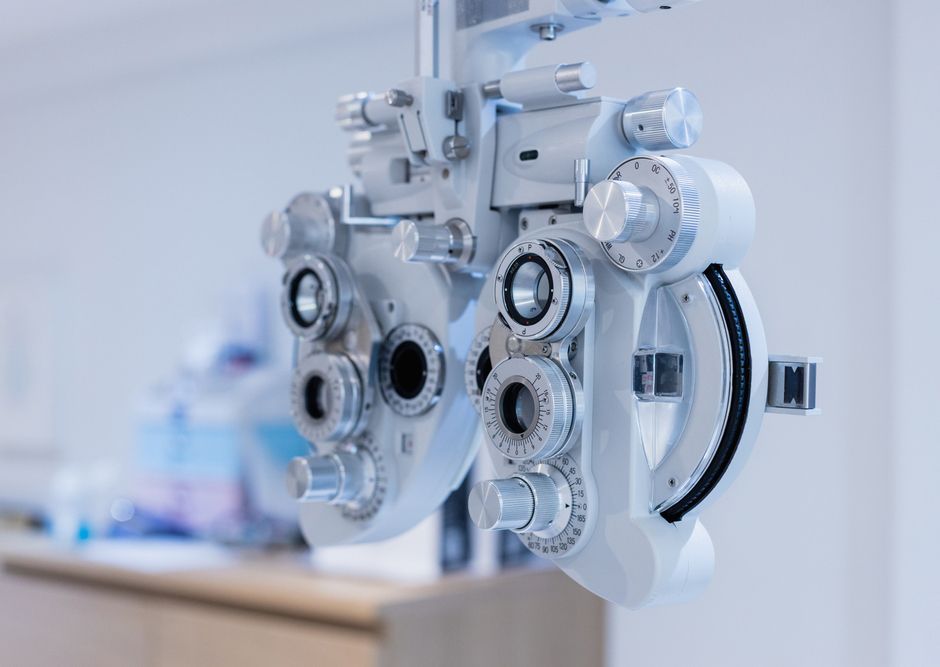FAQ
Ophthalmology in Honolulu
Have you ever wondered what the difference between an ophthalmologist and an optometrist was? Do you think you might have chronic dry eye? Below you'll find the questions we get asked most frequently at Ming Chen, M.D., MSc, F.A.C.S.'s ophthalmology practice, and the answers. Don't see the one that's on your mind? Call our office in Honolulu, Hawaii today!
Education Materials
What is an Ophthalmologist?
An Ophthalmologist is a medically trained doctor who has undertaken further specialist training and study in matters relating to the human eye.
What is the difference between an ophthalmologist, orthoptist and optometrist?
They are all professionally trained people who treat those with ophthalmic problems.
Ophthalmologists are medically trained doctors who have undertaken further specialist training and study in matters relating to the human eye. They examine, diagnose and treat diseases and injuries of the eye. They can prescribe a wide range of medicines, perform eye surgery and typically work in the Hospital Eye Service.
Orthoptists diagnose and treat defects of vision and abnormalities of eye movement. They are usually part of a hospital care team looking after people with eye problems especially those related to binocular vision, amblyopia (lazy eye) and strabismus (squint).
Optometrists examine eyes, give advice on visual problems and prescribe and fit glasses or contact lenses.
How do I find Dr. Chen's Office?
The address is 55 S. Kukui St., Suite C-109, but finding the entrance for the first time can be confusing. The office is located in Kukui Plaza (ground floor), and can be accessed from the Diamond Head side of the building facing Fort Street Mall.
How can I make an appointment?
All patient services are by appointment only. Walk-in patients will be seen if urgent, however there may be a wait as scheduled patients have priority. To schedule an appointment phone (888) 494-2462 during our hours of operation
How long does it take for a routine eye exam?
The length of time for an eye examination will depend entirely upon the condition of the eye(s).
How long will it take to be seen by the doctor?
If you have an appointment, our patient schedules are normally on time and there will likely be no wait.
Is the doctor going to dilate my eyes?
The necessity for patients to have their eyes dilated will depend entirely upon their eye condition.
My eyes don't hurt and my vision is okay. Why should I have an eye exam?
Regular eye exams are an invaluable tool in maintaining your eyes' health by detecting and preventing disease. Some diseases, such as glaucoma, often develop gradually without causing pain or vision loss, so you may not notice anything wrong until significant and irreversible damage has been done. Early detection of any problems can allow for a choice of treatment options and a reduced risk of further harm.
How much is the patient share costs for an eye exam?
Patient co-payments will depend upon the coverage of your insurance plan and will normally range from 0 - 20%.
What is dry eye?
"Dry eye" is the term for when your eyes are insufficiently moisturized, either because they do not produce enough tears or because the tears have an improper chemical composition. It often occurs during the natural aging process, but it can also form as a result of eyelid or blinking problems, certain medications (antihistamines, oral contraceptives, antidepressants), climate (low humidity, wind, dust), injury, and various health problems (arthritis, Sjogren's syndrome). Symptoms include:
- Irritated, scratchy, dry, uncomfortable or red eyes
- A burning sensation or feeling of something foreign in your eyes
- Blurred vision
In addition to being uncomfortable, dry eye can damage eye tissue, scar the cornea and impair vision. Dry eye is not preventable, but it can be controlled before harm is done to your eyes.
How is dry eye treated?
Treatment for dry eye can take many forms. Non-surgical methods include blinking exercises, increasing humidity at home or work, and use of artificial tears or moisturizing ointment. If these methods fail, small plugs may be inserted in the corners of the eyes to limit tear drainage, or the drainage tubes in the eyes may be surgically closed.
For more information about eye health, visit www.geteyesmart.org.
Our staff speaks Cantonese and Taiwanese. Call (808) 531-8874.





